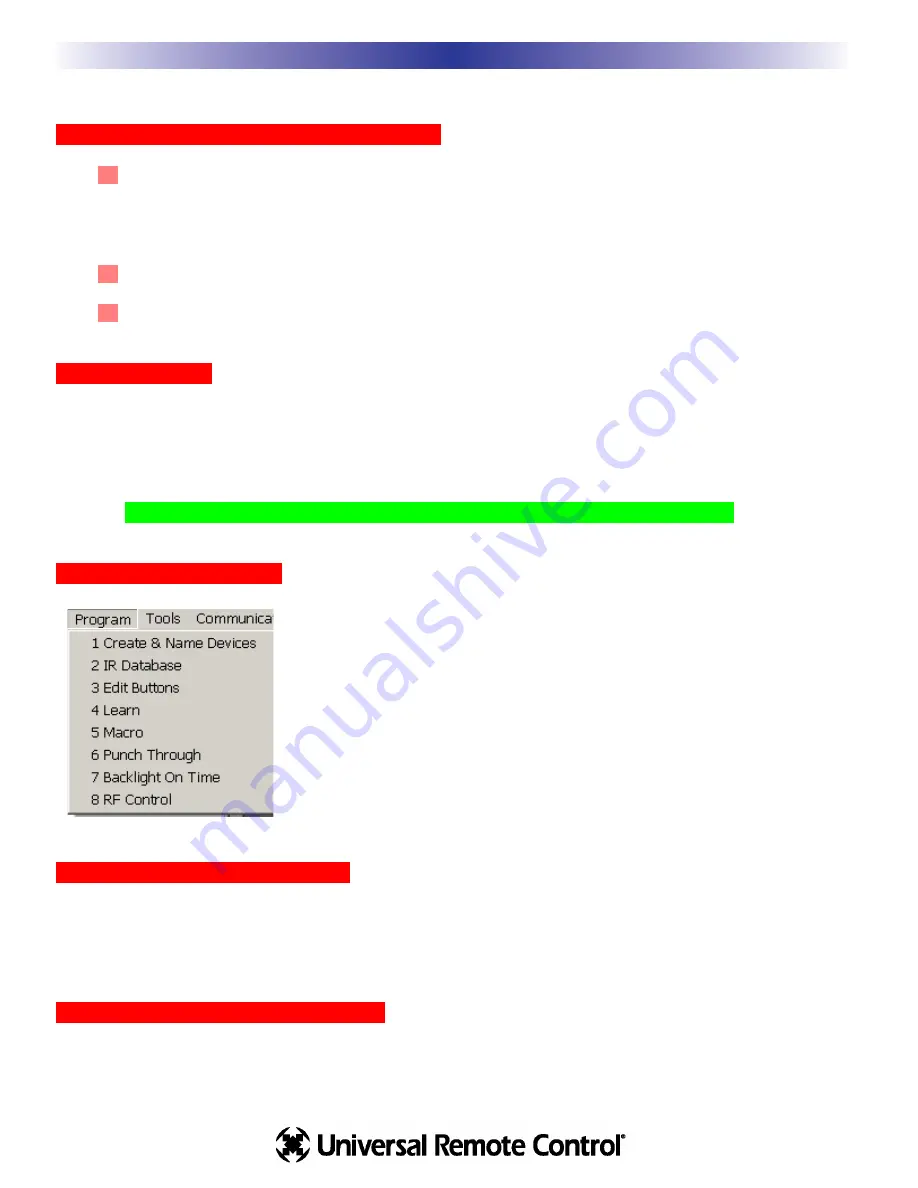
4
Type in Section Title
U
S
I
N
G
M
X
9
5
0
E
D
I
T
O
R
T
O
P
R
O
G
R
A
M
Programming Overview
A. New File, Existing File on PC or in Remote
NEW - Starting from scratch on a new job, go to the File Menu, choose New from the File Menu and
pick the type of template you would like to use to program with. None of the templates have any IR
codes, just prelabeled empty devices. It’s just personal preference whether you rename a list of
devices or create new ones in an empty configuration.
OPEN - Open a configuration that you have worked on before and saved onto the PC hard drive.
UPLOAD - Get a file from a client’s remote control that another installer created. Now, you can save
the file on your laptop, make any edits or changes as the client requests or the jobsite requires.
B. Use SAVE AS
The templates files are simply configuration files that have been preprogrammed for you. They will keep any
changes you make. Utilize
Save As
to make a new file with a new file name. All configuration files are saved
with the file extension .rcc; all device files are also saved with the extension .rcc (see D. Save and Export,
below).
TIP —
Always use File | Save As to rename the file before doing any programming!
Use the customer’s name and a rev # (i.e. SmithTheaterRev1.mxf)
C. Use the Program Menu
The Program Menu is your lifeline to a fast, easy programming experience.
Follow the steps in the order shown in the Menu for best results. Typically, you
will download to the remote control several times throughout this process and
test what you have done so far. You’ll need to download after finishing all pro-
gramming. For macro playback to work, you need to have downloaded. These
downloads are not listed in the steps here in the Program Menu and are not
automatically done for you.
It is important that you do all of the tasks for each step before moving on to the
next step. Keep this manual handy so that you can verify that you have com-
pleted all of your tasks.
D. Save and Reuse Customer Files
Archive and save your customer files.Programming systems with similar components gets even faster when you
don’t have to redo your work over and over. You have your own ideas about what buttons should be labeled
and how they should be arranged. You’ll save all of your work and reuse it on the next job with similar com-
ponents and devices.
E. Download to both Remote Controls
For once, you have a pre-printed summary sheet and an instruction manual for the entire Home Theater! Enjoy
a brief training with your client and get home on time tonight!
Programming Overview























